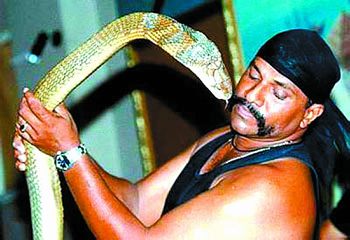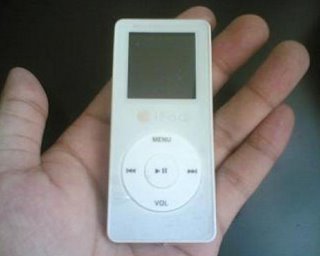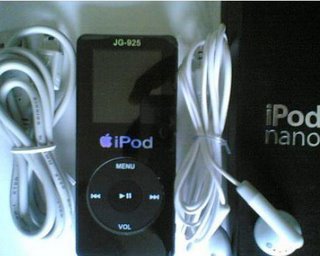Monday, December 25, 2006
Friday, December 22, 2006
Google's Top news searches differ from top web searches
Paris Hilton topped in Google news’ searches in 2006. Google zeitgeist just release its compiled year-end lists and graphs, they compared frequent queries this year versus 2005 to see what kind of things were top of mind.
Google.com - Top Searches in 2006
1. bebo
2. myspace
3. world cup
4. metacafe
5. radioblog
6. wikipedia
7. video
8. rebelde
9. mininova
10. wiki
Google News - Top Searches in 2006
1. paris hilton
2. orlando bloom
3. cancer
4. podcasting
5. hurricane katrina
6. bankruptcy
7. martina hingis
8. autism
9. 2006 nfl draft
10. celebrity big brother 2006
Read more...
Google.com - Top Searches in 2006
1. bebo
2. myspace
3. world cup
4. metacafe
5. radioblog
6. wikipedia
7. video
8. rebelde
9. mininova
10. wiki
Google News - Top Searches in 2006
1. paris hilton
2. orlando bloom
3. cancer
4. podcasting
5. hurricane katrina
6. bankruptcy
7. martina hingis
8. autism
9. 2006 nfl draft
10. celebrity big brother 2006
Read more...
Wednesday, December 20, 2006
Malaysia's Famous "Snake king" dies after been bitten by deadly cobra

Malaysia's "snake king", Ali Khan Samsuddin, who broke records by living with thousands of scorpions and hundreds of snakes, has died after a deadly bite from a six-meter long King Cobra during a snake show, local media reported Saturday.Wow! He shouldn't continue doing it after being bitten by a king cobra for the third time. He might think he is invincible but he is not God. Too bad his life ended with that. But he is somekind of a person who has a power. Imagine, he only dies after being bitten by a King Cobra on the fourth times.
The holder of 2 Guinness World Records: living with 6,000 scorpions for 21 days and staying with 400 cobras for 40 days - received outpatient treatment at Kuala Lumpur Hospital after the incident because his condition did not seem that serious.
However, on Thursday night, the snake charmer complained of feeling weak, with swellings on his body and his arm turning dark. Ali Khan had previously been bitten by a King Cobra and survived the first three times, all thanks to his own recipe and timely medical treatment, but was not that fortunate as he passed away on Friday morning after the fourth bite.
The 48 year-old man was a well-known snake charmer who had previously performed in Malaysia, Thailand, Singapore and Indonesia and amazed many with his dangerous "kissing the King Cobra" act.
Grrr… with just by looking at the picture alone it make me shiver. Ewww… I just don’t like snakes, that is one of my phobias, I just can’t help it when there is a snake near me but to stay away from it.
Tuesday, December 19, 2006
You Are Time Magazine's Person Of The Year 2006
 In 1982, Time Magazine’s Man of the Year is the Computer but this year’s person of the year is YOU, yes! You, anyone using or creating content on the World Wide Web. You, who uses the computer to share facts, information, news, pictures, videos etc. through The Internet.
In 1982, Time Magazine’s Man of the Year is the Computer but this year’s person of the year is YOU, yes! You, anyone using or creating content on the World Wide Web. You, who uses the computer to share facts, information, news, pictures, videos etc. through The Internet.It seems that the world can’t find any great men these days. Hmmm… where have all the great men gone? This only shows that the year 2006 is the year where no individual noble man outshined the principles to become Time Magazine’s Man of The Year. Because the year 2006 is full of hatred, from Iraq’s conflicts that became bloodier to the battle between Lebanon and Israel to the war haul on Sudan. For the moment nobody created a great honor, even the two times Man of the Year winner George W. Bush didn’t complete his third time because he wasn’t able to explain the war in the Middle East.
This years Person of The Year are YouTube contributors, MySpace users, The Blogger’s, and all sorts of things in the World Wide Web (The Internet). With Internet you can reach out around the world even if you are just only in the comfort of your room. You can share News and information to the whole wide world with just a click of the mouse, you can donate to Hurricane Katrina and Albay’s landslide victims online.
Last year's winners were Bill and Melinda Gates and rock star Bono, who were cited for their charitable work and activism aimed at reducing global poverty and improving world health.
Who will be next year? Will it be the Cellular Phones? Your MP3 Players, or will it be Manny Pacqiauo?
Monday, December 18, 2006
Today In History - The Simpsons Debuts (1989)
 One of the most popular animated TV shows in American history, The Simpsons has earned its spot in pop culture through its parodies of the "Middle American" lifestyle. The show, created by Matt Groening, is a spin-off of a series of animated shorts originally aired on The Tracey Ullman Show and has earned 21 Emmy Awards, 22 Annie Awards, and a star on Hollywood's Walk of Fame. Groening named most of the main characters after his own family members. Where does Bart's name come from?
One of the most popular animated TV shows in American history, The Simpsons has earned its spot in pop culture through its parodies of the "Middle American" lifestyle. The show, created by Matt Groening, is a spin-off of a series of animated shorts originally aired on The Tracey Ullman Show and has earned 21 Emmy Awards, 22 Annie Awards, and a star on Hollywood's Walk of Fame. Groening named most of the main characters after his own family members. Where does Bart's name come from?Read more
Saturday, December 16, 2006
You Are Nothing But A First Rate, Grammar Nazi
I just want to post this article from wikipedia to remind some people that they are such an English Grammar Nazis slash pathetic idiots. According to some research, most English Grammar Nazis are from the Philippines. I just don’t know why it is really a BIG deal in the Philippines when someone has grammatical error on his/her language, especially in a blog. This is not a Thesis anyway, why bother with the grammatical and spelling errors? and just focus on the issue instead. Duh! I don’t wanna name names but you already know who you are.
What is a Grammar nazi?
From Wikipedia, the free encyclopedia
Grammar nazi, spelling nazi and language nazi are all terms used to describe a participant in a discussion, online or otherwise, who criticizes or corrects the language usage of another participant. Such a person is often accused of flaming as a result of finding fault with minor details of other participants' messages and often only in opinions with which the accused grammar nazi disagrees. Participants in these discussions often end up taking opposite sides in a prescription versus description debate.
Use of these terms is often considered derogatory. However, some people do view grammar nazism as a virtue rather than a flaw and insist upon strict usage of the language in question. These individuals are more likely to wear the badge of "grammar nazi" with pride and can even refer to themselves in this manner. In some situations, a more relaxed method of speech or prose may be appropriate; it is these situations in which grammar nazis are more commonly chastised.
The many exceptions and intricacies of English language spelling can present a problem for even the most experienced user. In addition, the instantaneous nature of the Internet discourages careful editing of one's posts before submission. This, combined with the possibility of typographical errors, often makes it very easy to find a spelling error in a message with which a user could choose to find fault. In other languages with more regular spelling, other grammatical features might be criticized, such as use of the subjunctive mood or the placement of diacritics.
The grammar nazi's method of argument often ignores the content of another user's argument and focuses on its quality, distracting from the issue at hand. This method may become an ad hominem attack, which is a logical fallacy. On the other hand, errors and stylistic flaws may themselves make an argument hard to follow, and for this reason they may be deliberately introduced by trolls.
Origin of the phrase
The term "grammar nazi", along with similar coinings such as "spelling nazi", "soup nazi", and "food nazi", comes indirectly from the Nazis, members of the National Socialist German Workers Party under Adolf Hitler. The original reason for adopting this metaphor was that the person concerned stuck obsessively to rules and implemented them in an aggressive manner; obsessiveness, rule-making and aggression are considered characteristic of Nazis. However, as used today the phrase has no direct connection to fascism, in the same way that accusing someone of being a philistine does not mean they are from Philistia or say anything about people who today live in Canaan, or calling someone a vandal does not mean they are actually connected to that German tribe. The fact that these nouns have lost their original capital letter is an indication that they have become part of everyday speech with few people considering the origins of these terms when using them.
Nonetheless, these uses are offensive to some, as the controversy in the popular press over the Seinfeld "Soup Nazi" episode indicates, but still the terms are used so frequently as to inspire "Godwin's Law". Alternatives used in some circles include "grammar police", "grammar cop" (a term that Jeopardy! champion Ken Jennings admitted was an accurate description of himself), and even the trademarked "Grammer Cop", intentionally misspelled.
What is a Grammar nazi?
From Wikipedia, the free encyclopedia
Grammar nazi, spelling nazi and language nazi are all terms used to describe a participant in a discussion, online or otherwise, who criticizes or corrects the language usage of another participant. Such a person is often accused of flaming as a result of finding fault with minor details of other participants' messages and often only in opinions with which the accused grammar nazi disagrees. Participants in these discussions often end up taking opposite sides in a prescription versus description debate.
Use of these terms is often considered derogatory. However, some people do view grammar nazism as a virtue rather than a flaw and insist upon strict usage of the language in question. These individuals are more likely to wear the badge of "grammar nazi" with pride and can even refer to themselves in this manner. In some situations, a more relaxed method of speech or prose may be appropriate; it is these situations in which grammar nazis are more commonly chastised.
The many exceptions and intricacies of English language spelling can present a problem for even the most experienced user. In addition, the instantaneous nature of the Internet discourages careful editing of one's posts before submission. This, combined with the possibility of typographical errors, often makes it very easy to find a spelling error in a message with which a user could choose to find fault. In other languages with more regular spelling, other grammatical features might be criticized, such as use of the subjunctive mood or the placement of diacritics.
The grammar nazi's method of argument often ignores the content of another user's argument and focuses on its quality, distracting from the issue at hand. This method may become an ad hominem attack, which is a logical fallacy. On the other hand, errors and stylistic flaws may themselves make an argument hard to follow, and for this reason they may be deliberately introduced by trolls.
Origin of the phrase
The term "grammar nazi", along with similar coinings such as "spelling nazi", "soup nazi", and "food nazi", comes indirectly from the Nazis, members of the National Socialist German Workers Party under Adolf Hitler. The original reason for adopting this metaphor was that the person concerned stuck obsessively to rules and implemented them in an aggressive manner; obsessiveness, rule-making and aggression are considered characteristic of Nazis. However, as used today the phrase has no direct connection to fascism, in the same way that accusing someone of being a philistine does not mean they are from Philistia or say anything about people who today live in Canaan, or calling someone a vandal does not mean they are actually connected to that German tribe. The fact that these nouns have lost their original capital letter is an indication that they have become part of everyday speech with few people considering the origins of these terms when using them.
Nonetheless, these uses are offensive to some, as the controversy in the popular press over the Seinfeld "Soup Nazi" episode indicates, but still the terms are used so frequently as to inspire "Godwin's Law". Alternatives used in some circles include "grammar police", "grammar cop" (a term that Jeopardy! champion Ken Jennings admitted was an accurate description of himself), and even the trademarked "Grammer Cop", intentionally misspelled.
Source: WikiPedia
Thursday, December 14, 2006
Cagayan de Oro's White Water Rafting Adventure
With my friends and officemates, we are planning long before to experience the Cagayan de Oro’s White Water Rafting. But the long wait is over last Sunday, December 10, 2006. We finally decided that it is really time to take action, since the year 2006 is about to end and we don’t want to be left behind by those tourists who are already enjoying the adventure in our own city.
The adventure was awesome great! I definitely want to experience more those mind-blowing, breathtaking rapids adventure of water rafting, and the gushing over the river rocks and boulders that you can feel while the raft pass-by and at the same time as we are paddling our way to the rapids is such an awesome adventure that I will definitely love to do over and over again. Our white water adventure stretched for about 12 kilometers with 14 rapids (the minimum), and on the side tour you can see the awesome scenery of the caves, the abrupt rocky walls beside the river, the green vegetation, the gorges and the resting haven of monkeys and snakes, wow! I never knew Cagayan de Oro has a place like that, not until I experienced the white water rafting. It is really true what they say “Huwag maging dayuhan sa sariling bayan”. You see, I am already 25 years old here on this city and still there are places here I never yet explored.
Anyway, this coming 2007, I promise myself not to deprive from exploring places here in the city. I will wander the City of Golden Friendship, The Cagayan de Oro as a whole, from north to south and east to west.
Here are some of the pictures of our white water rafting adventure.
The adventure was awesome great! I definitely want to experience more those mind-blowing, breathtaking rapids adventure of water rafting, and the gushing over the river rocks and boulders that you can feel while the raft pass-by and at the same time as we are paddling our way to the rapids is such an awesome adventure that I will definitely love to do over and over again. Our white water adventure stretched for about 12 kilometers with 14 rapids (the minimum), and on the side tour you can see the awesome scenery of the caves, the abrupt rocky walls beside the river, the green vegetation, the gorges and the resting haven of monkeys and snakes, wow! I never knew Cagayan de Oro has a place like that, not until I experienced the white water rafting. It is really true what they say “Huwag maging dayuhan sa sariling bayan”. You see, I am already 25 years old here on this city and still there are places here I never yet explored.
Anyway, this coming 2007, I promise myself not to deprive from exploring places here in the city. I will wander the City of Golden Friendship, The Cagayan de Oro as a whole, from north to south and east to west.
Here are some of the pictures of our white water rafting adventure.
There are no breathtaking rapids actions here because we can't afford the camera to get wet while on rapids. We can only take shots on still waters.
As I promised to post the breathtaking rapids actions click below for...
Thursday, December 07, 2006
My New FlatPOD (1GB) MP3/MP4 Player (IPod Nano) from Auction.ph
 Woo! Hoo! I won! I won!
Woo! Hoo! I won! I won!You might think I am insane. Well, I am not… I am just lucky to won an e-money at Auction.ph worth 2,900.00 it’s not that large amount but it makes a person like me happy. You see, I only registered and then it credits me with one e-coupon that will be my entry for a daily raffle.
I was a bit surprised to take a call from auction.ph notifying me that I won, so, I check right away my account at auction.ph and there was my e-money worth 2,900.00. So what I did is I look for items on sale on the site and I chose the FlatPod (1GB) MP3/MP4 Player of the seller named densho01, guys I will recommend densho01 at auction.ph if you want to purchase there. He gave me discount and he is nice in dealing with his buyers.
If you haven’t registered at Auction.ph yet go click this link Auction.ph and register. This site is an E-bay counterpart but only localized. Other than buying and selling items, you can bid for the sales and even you can join to their promos like “One Peso Auction Fever”, “Daily Lucky Combo”, even win like me to their P30 Milyong Pabuenas ng Auction.
Here’s the Features of the Item I purchased from my winning E-money.
FLATPOD (1GB) MP3/MP4 PLAYER (IPod Nano)
Features:
Plays mp3, mp4, wma, wav, video
Photo browser
FM Tuner
Digital Voice Recorder
65,000 color 1.5” LCD screen
Lyrics display
Digital equalizer
Flashdisk, Rechargeable battery
Included In The Package
MP4 player
Stereo Earphones
Charger
USB cable
CD driver
Manual
Box
Tuesday, December 05, 2006
I Exercise My Right To Freedom of Speech Through This Site
I presumed you’ve seen the Freedom of Speech tag above of this blogsite. I own this blog and registered for it at Blogger.com in my name, so, I have the rights to claim it. If in case I violated the terms of service through this blog you are free to let me know what is it that made it a violations and I will modify it to make it acceptable to your spirit, if possible, but don’t demand, harass or threat me to do it. The things I posted here are in my willpower and commanding me what to do on this blog is not of your business but there are some exemptions that I will only keep to myself.
I can’t even expressed all the things I write here because of some circumstances, unlike Cofibean's You Want a Piece of Me? postings. I look-up to him as a blogger because he writes what he feels without hesitations and I think he is contented with that because he let out what he feels he wanted to convey, though he is kinda rude and expressive and that character is not what in myself. He only practice Freedom of Speech.
Speaking of Freedom of Speech, What is Freedom of Speech?
According to Wikipedia, Freedom of speech is enshrined in the United Nations Universal Declaration of Human Rights and is granted formal recognition by the laws of most nations. Nonetheless the degree to which the right is upheld in practice varies greatly from one nation to another. In some nations with relatively authoritarian forms of government, overt government censorship is enforced, while among liberal democracies, censorship has been claimed to occur in a different form (see propaganda model) and there are different approaches to issues such as hate speech, obscenity and defamation laws.
The first formal request for freedom of speech in recorded history was made by Sir Thomas More in front of the English Parliament and King Henry VIII on April 18, 1523.
International law
The United Nations Universal Declaration of Human Rights, adopted in 1948, provides, in Article 19, that:
Everyone has the right to opinions without interference and to seek, receive and impart information and ideas through any media and regardless of frontiers.
Technically the Declaration is a resolution of the United Nations General Assembly rather than a treaty and so it is not legally binding, in its entirety, on members of the UN, and, while some of its provisions are considered to form part of customary international law, there is dispute as to precisely which provisions do so. Freedom of speech is granted unambiguous protection in international law by the International Covenant on Civil and Political Rights which is binding on around 150 nations. Article 19 provides that:
1. Everyone shall have the right to hold opinions without interference.
2. Everyone shall have the right to freedom of expression; this right shall include freedom to seek, receive and impart information and ideas of all kinds, regardless of frontiers, either orally, in writing or in print, in the form of art, or through any other media of his choice.
3. The exercise of the rights provided for in paragraph 2 of this article carries with it special duties and responsibilities. It may therefore be subject to certain restrictions, but these shall only be such as are provided by law and are necessary:
(a) For respect of the rights or reputations of others;
(b) For the protection of national security or of public order (ordre public), or of public health or morals.
The right is further qualified by Article 20 which prohibits war propaganda, incitement to violence and certain forms of hate speech. In adopting the Covenant the Republic of Ireland, Italy and Luxembourg insisted on reservations to Article 19 in so far as it might be held to affect their systems of regulating and licensing broadcasting [1]. A number of state parties also have official reservations to Article 20.
Freedom Of Speech In Asia
Several Asian countries provide formal legal guarantees of freedom of speech to their citizens. These are not, however, implemented in practice in most places. Countries such as Vietnam, Myanmar, Singapore, North Korea and Central Asian Republics like Turkmenistan brutally repress freedom of speech. Freedom of speech has been greatly improved in the People's Republic of China in recent years [citation needed], but the level of free expression is still far from that of western nations.
International Freedom of Expression Exchange
The International Freedom of Expression eXchange (IFEX), founded in 1992, is a global network of 72 non-governmental organisations that promotes and defends the right to freedom of expression.
Managed by Canadian Journalists for Free Expression, IFEX harnesses the power of the Internet to rapidly exchange information and mobilise action on issues such as press freedom, Internet censorship, freedom of information legislation, criminal defamation and insult laws, media concentration and attacks on journalists, writers, human rights defenders and Internet users. A Clearing House in Toronto, Canada coordinates the programmes and activities of IFEX.
The membership of IFEX encompasses a broad array of organisations that work to defend journalists and media personnel, academics, photographers and camera operators, writers, cyber-dissidents, publishers, cartoonists, community radio stations and libraries.
Media Transparency
Media Transparency is the concept of determining how and why information is conveyed through various means.
This is a specific case of the topic, Transparency (humanities). As used in the humanities, it implies openness and accountability. It is a metaphorical extension of the meaning used in the physical sciences: a “transparent” object is one that can be seen through.
In communication studies, Media is transparent when:
* there are many, often competing, sources of information
* much is known about the method of information delivery
* the funding of media production is publicly available
Aspects of transparent media include open source documentation, open meetings, financial disclosure statements, the freedom of information legislation, budgetary review, audit, peer review, etc.
Some organisations and networks insist that not only the ordinary information of interest to the community is made freely available, but that all (or nearly all) meta-levels of organising and decision-making are themselves also published. This is known as radical transparency. These organizations include: Wikipedia, the GNU/Linux community, and Indymedia.
Media Transparency may also refer to the nonprofit organization of the same name devoted to providing information on right-wing funding, especially as it relates to United States media.
Source:
http://en.wikipedia.org/wiki/Freedom_of_speech
http://en.wikipedia.org/wiki/.......
http://en.wikipedia.org/wiki/Media_transparency
I can’t even expressed all the things I write here because of some circumstances, unlike Cofibean's You Want a Piece of Me? postings. I look-up to him as a blogger because he writes what he feels without hesitations and I think he is contented with that because he let out what he feels he wanted to convey, though he is kinda rude and expressive and that character is not what in myself. He only practice Freedom of Speech.
Speaking of Freedom of Speech, What is Freedom of Speech?
According to Wikipedia, Freedom of speech is enshrined in the United Nations Universal Declaration of Human Rights and is granted formal recognition by the laws of most nations. Nonetheless the degree to which the right is upheld in practice varies greatly from one nation to another. In some nations with relatively authoritarian forms of government, overt government censorship is enforced, while among liberal democracies, censorship has been claimed to occur in a different form (see propaganda model) and there are different approaches to issues such as hate speech, obscenity and defamation laws.
The first formal request for freedom of speech in recorded history was made by Sir Thomas More in front of the English Parliament and King Henry VIII on April 18, 1523.
International law
The United Nations Universal Declaration of Human Rights, adopted in 1948, provides, in Article 19, that:
Everyone has the right to opinions without interference and to seek, receive and impart information and ideas through any media and regardless of frontiers.
Technically the Declaration is a resolution of the United Nations General Assembly rather than a treaty and so it is not legally binding, in its entirety, on members of the UN, and, while some of its provisions are considered to form part of customary international law, there is dispute as to precisely which provisions do so. Freedom of speech is granted unambiguous protection in international law by the International Covenant on Civil and Political Rights which is binding on around 150 nations. Article 19 provides that:
1. Everyone shall have the right to hold opinions without interference.
2. Everyone shall have the right to freedom of expression; this right shall include freedom to seek, receive and impart information and ideas of all kinds, regardless of frontiers, either orally, in writing or in print, in the form of art, or through any other media of his choice.
3. The exercise of the rights provided for in paragraph 2 of this article carries with it special duties and responsibilities. It may therefore be subject to certain restrictions, but these shall only be such as are provided by law and are necessary:
(a) For respect of the rights or reputations of others;
(b) For the protection of national security or of public order (ordre public), or of public health or morals.
The right is further qualified by Article 20 which prohibits war propaganda, incitement to violence and certain forms of hate speech. In adopting the Covenant the Republic of Ireland, Italy and Luxembourg insisted on reservations to Article 19 in so far as it might be held to affect their systems of regulating and licensing broadcasting [1]. A number of state parties also have official reservations to Article 20.
Freedom Of Speech In Asia
Several Asian countries provide formal legal guarantees of freedom of speech to their citizens. These are not, however, implemented in practice in most places. Countries such as Vietnam, Myanmar, Singapore, North Korea and Central Asian Republics like Turkmenistan brutally repress freedom of speech. Freedom of speech has been greatly improved in the People's Republic of China in recent years [citation needed], but the level of free expression is still far from that of western nations.
International Freedom of Expression Exchange
The International Freedom of Expression eXchange (IFEX), founded in 1992, is a global network of 72 non-governmental organisations that promotes and defends the right to freedom of expression.
Managed by Canadian Journalists for Free Expression, IFEX harnesses the power of the Internet to rapidly exchange information and mobilise action on issues such as press freedom, Internet censorship, freedom of information legislation, criminal defamation and insult laws, media concentration and attacks on journalists, writers, human rights defenders and Internet users. A Clearing House in Toronto, Canada coordinates the programmes and activities of IFEX.
The membership of IFEX encompasses a broad array of organisations that work to defend journalists and media personnel, academics, photographers and camera operators, writers, cyber-dissidents, publishers, cartoonists, community radio stations and libraries.
Media Transparency
Media Transparency is the concept of determining how and why information is conveyed through various means.
This is a specific case of the topic, Transparency (humanities). As used in the humanities, it implies openness and accountability. It is a metaphorical extension of the meaning used in the physical sciences: a “transparent” object is one that can be seen through.
In communication studies, Media is transparent when:
* there are many, often competing, sources of information
* much is known about the method of information delivery
* the funding of media production is publicly available
Aspects of transparent media include open source documentation, open meetings, financial disclosure statements, the freedom of information legislation, budgetary review, audit, peer review, etc.
Some organisations and networks insist that not only the ordinary information of interest to the community is made freely available, but that all (or nearly all) meta-levels of organising and decision-making are themselves also published. This is known as radical transparency. These organizations include: Wikipedia, the GNU/Linux community, and Indymedia.
Media Transparency may also refer to the nonprofit organization of the same name devoted to providing information on right-wing funding, especially as it relates to United States media.
Source:
http://en.wikipedia.org/wiki/Freedom_of_speech
http://en.wikipedia.org/wiki/.......
http://en.wikipedia.org/wiki/Media_transparency
The Mr. Know-It-All (a.k.a. The Friend You Don’t Need)
We all have that one “friend” who seems to know everything . Talk about traveling? He’s “been there.” Mention investing? He suddenly becomes...


































